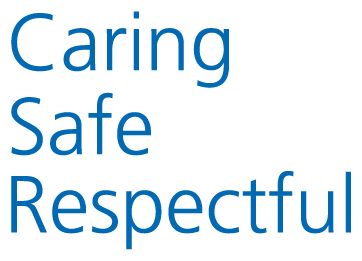This section of our site attempts to answer some of our most commonly asked questions. The list is by no means exhaustive and you are encouraged to speak directly to your anaesthetist or a member of the nursing team if you have any questions or concerns. Alternatively, you can refer to the contact information in this section if you wish to speak to somebody before you visit the hospital.
All patients undergoing elective surgery will have the opportunity to meet and discuss their anaesthetic management with an anaesthetist. In most cases this will be the doctor who will also administer your anaesthetic, however in some cases due to provision of service a second doctor who has been fully briefed about your case will give the anaesthetic.
Depending on the nature of the surgery and the state of your general health, it may be necessary to discuss the implications of anaesthesia and surgery prior to making a definite commitment to proceeding with your operation. Under these circumstances you will be notified of the need for you to attend the hospital to meet your anaesthetist.
Other patients attending for elective surgery may be assessed by junior surgical staff or by clinical nurse specialists. Each of these groups will then alert the anaesthetist about any concerns they may have. The anaesthetist will then meet with you on the ward prior to surgery or in the admissions and discharge lounge before you are given a bed on a ward.
At this time you should feel free to ask the anaesthetist any questions you may have about the administration of the anaesthetic, the provision of post operative pain control or any concerns you may have.
Patients who arrive at Blackpool Victoria Hospital and are found to require emergency surgery will be assessed by the emergency anaesthetic staff at the nearest available opportunity after the surgeons have made a decision to operate. This will routinely occur in one of three places: in the ward environment, in the Emergency Department or (most rarely) in the operating theatre suite.
You will usually be taken on a theatre trolley to the theatre reception area where your details will be checked. You may have already received a pre-medication tablet or injection by this time in which case you may be a little relaxed and drowsy. From there you will be taken into the anaesthetic room where routine-monitoring devices will be attached to you.
None of these cause any discomfort and many of them you will have met before i.e. ECG and blood pressure.
You will have an intravenous cannula sited by the anaesthetist (this may have a fluid drip attached to it) followed by any other procedures that the anaesthetist will have already discussed with you (e.g siting an epidural for postoperative pain relief).
Patients having surgery under regional anaesthesia will then have the appropriate injection delivered into their back. For patients going to sleep, more often than not an oxygen mask will be placed over your mouth and nose and a drug will then be administered through the cannula. The drug works very quickly and you should expect to fall asleep in a few seconds (we rarely ask you to count to ten unless you specifically request it!).
Many patients are surprised to learn that they will appear to be awake before they leave the operating theatre only a matter of minutes after the end of the operation. However, it is common not to remember this initial awakening and most patients ‘come to’ more fully in the recovery area some minutes later.
All operations that involve cutting the skin or muscle result in some pain. We work very hard to reduce the amount of discomfort that you will feel after any procedure. It is rare to be able to completely remove all postoperative pain but we strive to reduce it to a level that is easily bearable. We have a number of methods of achieving this, together with a team of specialist staff whose role is to help in the management of acute pain.
Regrettably there is a small group of people who regardless of intervention will always be or feel sick after surgery. Drug therapy to both treat and prevent postoperative nausea and vomiting is always evolving and like the pain issue it is rare that we cannot get patients to a situation where they feel that their condition is tolerable. It is very important that you inform your anaesthetist if you are prone to this problem.
The answer to this is of course yes! Even giving up for a day or so before surgery reduces the amount of carbon monoxide in the blood stream and means that the blood can carry more oxygen to the vital organs. Better still – use the stay in hospital as the time to give up for good.
The general answer to this is yes. It is particularly important your health is not upset by you missing out more tablets than is absolutely necessary around the time of your operation. For patients attending for day case procedures, this means ensuring that you take your normal medication at home on the day of surgery. Having said this, there are a number of drugs that may have to be altered or stopped before an operation (e.g warfarin, insulin, tablets to reduce blood sugar, the oral contraceptive pill). The hospital staff will sort out these drugs for you, but if in doubt ask.
It is very important that your stomach is empty prior to anaesthesia and surgery. We would ask you not to eat for six hours prior to the time of surgery and not to drink water closer than two hours before surgery. You may take a small sip of water to help swallow tablets prior to surgery. The starvation rules apply to general and regional procedures just in case for any reason a regional (awake) procedure has to be abandoned in favour of a general anaesthetic.




